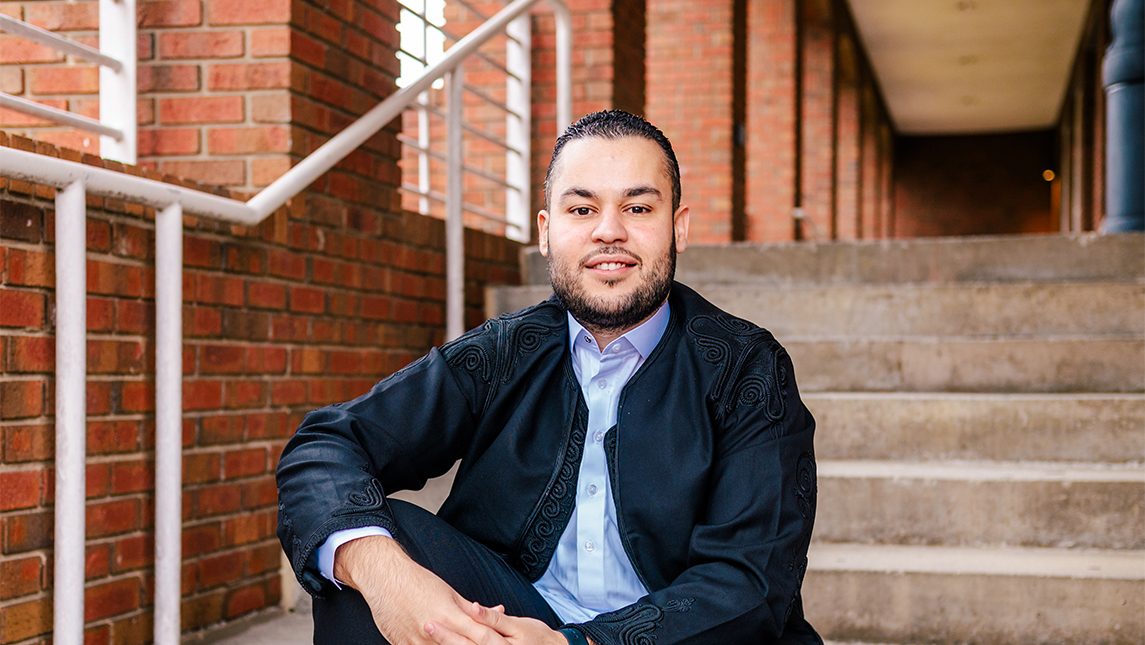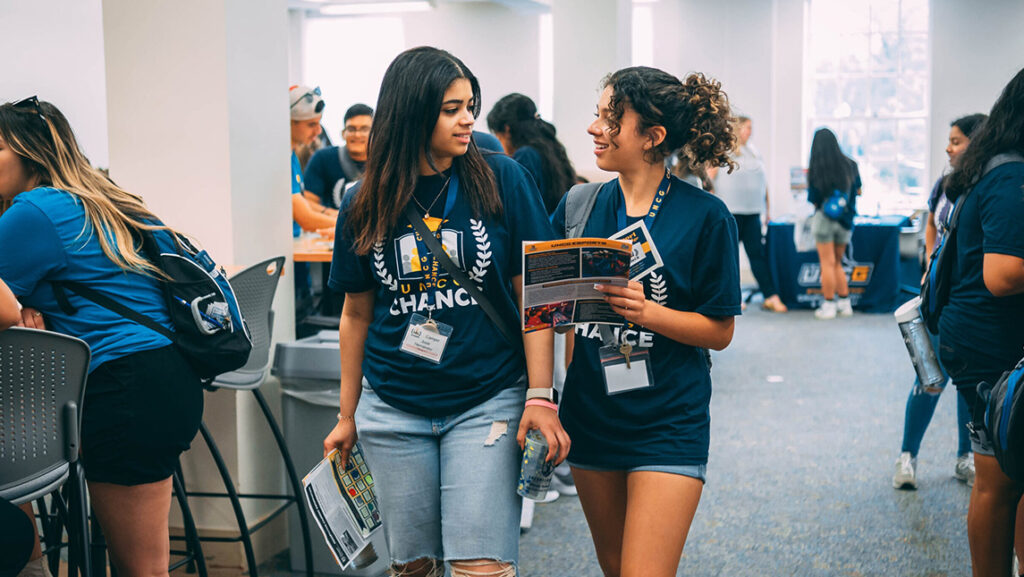Given a choice, Fulbright student Omar Sufian selects UNCG’s peace and conflict studies program in hopes of bringing greater human rights to people in Libya and beyond.
Omar Sufian didn’t have choices when it came to a major for his undergraduate studies. In his home country of Libya, the field of communications engineering was chosen for him, even though he had no interest in the field.
“It was just because of the way the educational system of Libya was organized when I was in high school,” he says. “The education system decides what students study based on their grades. Nothing I wanted was conceivable at the time.”
The Libyan civil war in 2011 changed that, opening the way for students to choose their own fields of study. Given the choice for his master’s degree, Sufian decided on a new direction. Selected for a Fulbright student award, he now studies peace and conflict studies at UNC Greensboro.
Benefits for both domestic and international students
The Fulbright Program is the U.S. government’s flagship international exchange program for students and scholars, providing opportunities for people from other countries to study in the United States and for American students to study abroad.
Maria Anastasiou, UNCG’s associate provost and senior international officer, says that having Fulbright students like Sufian on campus enriches academic discourse and research.
“In return, UNC Greensboro … offers these visitors the opportunity to experience the rich diversity of thought and cultures in the United States right here on our campus,” she adds. “It is my hope that more UNCG students and faculty will take advantage of Fulbright opportunities overseas because the benefits are immense.”
Pursuing human rights at home and abroad
Sufian intends to use what he learns at UNCG to help address human rights issues, first in Libya, which remains torn by conflict, and then on a broader scale. His passion for human rights is influenced by his experience growing up in Zuwarah as a member of the indigenous Amazigh community, known internationally as Berbers.
“Everyone in the country was oppressed before the revolution, but ethnic differences added more layers of oppression,” he says. “My values are protecting human rights and ensuring a better life for my fellow citizens, regardless of their ethnicities or political or ideological backgrounds.”
In Libya, Sufian volunteered with several organizations working to advance human rights and democratization.
“What I felt like I was missing is the academic perspective, which is why I came here,” he says. “UNCG has a very successful record in peace and conflict studies, and the program has a good reputation.”
Fulbright, UNCG offer life-enriching experiences
While at UNCG, Sufian has taken advantage of what he calls “life-changing” opportunities that the Fulbright Student Program and UNCG have given him to speak, engage and network with others.
Facilitating a UNCG panel on the Israeli-Palestine conflict, for example, gave him his first chance at leading a discussion in English, his third language.
In the Department of Peace and Conflict Studies, Sufian serves as a graduate research assistant. That role requires him to facilitate research projects, enhance departmental engagement and foster collaborative networks across disciplines.
“I am enthusiastic to change the status quo, especially when it comes to my country,” Sufian says. “I am really dedicated to investing in the knowledge and all the experiences and the exposure that I’m having here so that I can create the change I’m aspiring for.”
Learn more about Fulbright opportunities
Students and faculty members interested in pursuing Fulbright opportunities overseas can get help with the application process and with connecting with international partners from UNCG’s International Programs Center. Learn more as the center celebrates UNCG Fulbright recipients and international visitors on March 21 from 4-6 p.m. in the Alexander Room of the Elliott University Center.
Story by Dee Shore
Photography by: Sean Norona, University Communications




